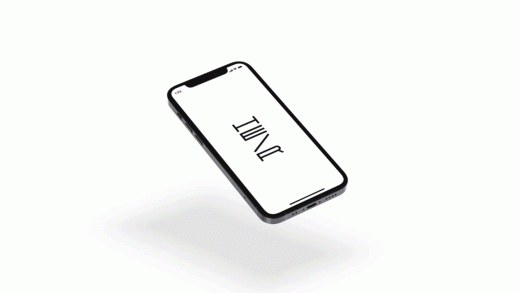This new Michael Jordan-backed startup offers a front-row seat to the changing nature of fandom
Let’s step back in time for a moment. You’re sitting in Brooklyn’s Barclays Center watching the 2013 NBA Draft. The Milwaukee Bucks just used the No. 15 pick to select a relatively unknown kid from Greece named Giannis Antetokounmpo. Imagine that you could invest in that kid, like a hoops stock, right then and there. What do you think that stock would be worth now after he’s collected Most Improved Player in 2017, Defensive Player of the Year in 2020, two league MVPs in 2019 and 2020, and an NBA championship title this past year?
Next year, a new, sports-focused social platform backed by Michael Jordan is launching with an aim to make that type of fan investment possible for the next generation. It’s called Heir, and it’s pitching itself as a personalized community, a Web 3.0 platform for athletes to connect with their most passionate and loyal supporters. It works through individual membership-based “Huddles,” or fan groups, where members have the ability to purchase access through a Huddle membership NFT to unlock an exclusive experience. Each Huddle will have a capacity that is a small percentage of that athlete’s broader social following. Once a Huddle reaches capacity, the only way for a new member to join is for another member to leave by selling that membership, similar to a stadium personal seat license. As an athlete’s popularity grows, so too will the value of that membership. Athletes will get a percentage of all transactions on the platform including resellers of huddle memberships and NFTs.
Heir is the first product of Heir Inc., a holding company founded by Jordan and his son Jeffrey. The company is led by the younger Jordan, Jeron Smith (Steph Curry’s former CMO and business partner), and Daniel George, a founder of the agency Limitless Creative. “Heir platform reimagines the traditional creator-fan relationship, through a digital-first experience,” says Jeffrey Jordan. “It’s built to empower athletes to monetize their supporters around the world.”
The company has closed a $10 million seed funding round led by Thrive Capital. Other investors include the blockchain platform Solana, Chicago Bulls guard Lonzo Ball, entrepreneur and investor Alexis Ohanian, and New York Knicks executive VP and senior basketball adviser William Wesley. In a statement, Thrive Capital partner Gaurav Ahuja says, “There’s an opportunity now to develop an ecosystem that enables fans to feel like insiders with the athletes they love. Heir’s ‘huddle’ provides a first-of-its-kind experience to be closer to athletes, becoming active co-owners and co-creators in the platform.”
Much like the celebrity-focused, text-based communications tool Community, Heir is offering a tool for athletes to know more about their fans and interact with them more directly than what social media usually allows. Heir’s cofounders say that the new platform isn’t a replacement for the scale of broader social media, but instead of revolving around sheer follower numbers, it centers on a smaller, more dedicated group of fans.
“It’s impossible to ignore the demand for access to athletes, as well as the trend of young people turning to digital goods. [Heir] just made a ton of sense,” says Jeffrey Jordan. “Fans are constantly looking for more and new ways to connect with their favorite athletes, both socially but also monetarily. Today, athletes have a large social following but no cohesive marketplace to fully monetize their brand, and foster authentic relationships with their fanbase, all within their control.”
While athletes can provide their Huddle with exclusive communication, content, and merchandise drops, Smith says that Heir will also take some of that engagement burden off the athlete, while still providing fan members with rare insights into their favorite star. “Our API buckets are an excellent example of that,” says Smith. “Take our Spotify connectivity. If you’re an athlete on the road, one of the most intimate things you do is leverage music for how you’re going to prepare for battle on the court or field. It’s how you wind down after the game as well. Music is a huge part of any athlete’s life. Our API bucket connects back into your Spotify to give your fans the ability to follow along with your music.”
That also extends to Netflix, where fans could see what their favorite athlete is watching on any given day. “We’ve been very thoughtful and diligent to create mechanisms within the huddle that allow us to optimize an athlete’s engagement, but also subsidize it with tools that help drive that engagement on their behalf,” says Smith.
Critics might see this as just another stock market, adding athlete fandom to the already growing velvet-roping of cultural commodities—from sneakers to art NFTs—driving prices up and making access ever more exclusive.
Smith disputes this suggestion, responding that Heir will merely be another opportunity for the most passionate fans. “This is a front-row seat in the changing nature of fandom,” says Smith. “We’ve seen how they want to engage, how they want to support their favorite athletes. We’re responding to what we’ve seen, and what fans are looking for. We’ve tried to create an equitable process as possible in doing this. We chose to build on blockchain for many reasons, and this is one of them.”
In that way, Heir hues closely to what leading advertising and brand strategist Zoe Scaman calls “The Future of Fandoms,” In a 2020 strategic marketing deck, Scaman wrote about how linear commerce will be a major part of how fans will interact with creators, entertainers, and athletes. “These new monetisation tools allow creators to build out their brands based on whatever access, content, communication, or rewards they may wish to offer,” wrote Scaman. “And for fans, it’s a direct line to the creators they love and they’re more than willing to shell out the cash to feel closer to them.”
Heir brings to sports what’s already happening in the evolving creator economy with membership-based services like Twitch Prime subscriptions in gaming, Substack subscription newsletters in journalism, or choosing a MasterClass membership over free YouTube tutorials.
Jordan says he’s been constantly talking to his Hall of Fame dad about the ways in which athletes can be in more control of their own brand. “He didn’t have any of these tools when he was playing, and he’s still trying to understand them,” says Jordan. “If you wanted to monetize your fanbase, there was always a third party in between, like a brand or someone else that had to get that message through. Growing up in that era where athletes weren’t equal beneficiaries to that community, and now seeing the ability to monetize their likability, he was immediately drawn to this concept.”
(45)



